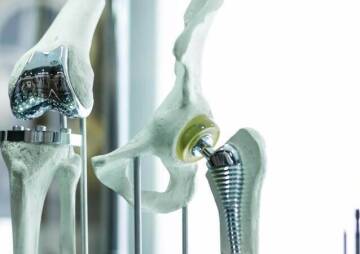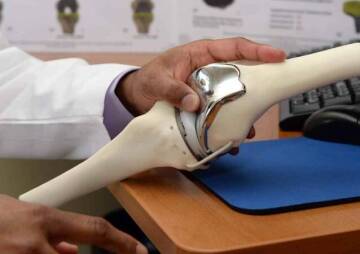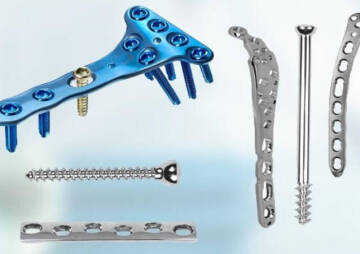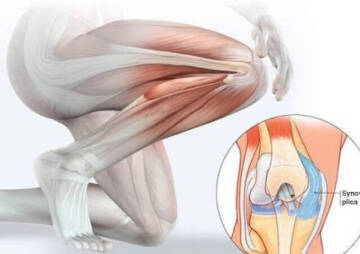-
Category
Craniomaxillofacial Surgery
Orthopedic Surgery
Spine Surgery
Orthopedic Implants
Hip Surgery
Knee Surgery
Pectus Excavatum
Bone Graft
Disinfectants
Healthcare
What Do You Know About Knee Replacement Surgery Risks?
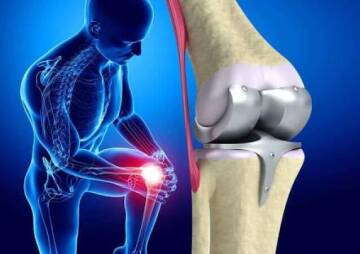
You can ease your worries about knee replacement surgery risks by reading this article.
Do you need knee replacement surgery, and are you concerned about the side effects? Well, you're right; knee replacement surgery is an important and somewhat complicated operation. But don't worry, you can ease your worries about surgery by reading this article. And you can find all you need about the knee replacement surgery risks. First of all, it is better to know what knee replacement surgery is. Knee replacement or 'knee Arthroplasty' is a surgical procedure in which knee joints damaged by osteoarthritis or other reasons are replaced with artificial materials. The surgeon removes the damaged bone and cartilage from the thighbone, shinbone, and kneecap and replaces it with an artificial joint during this procedure. Knee replacement surgery risks are a common concern for all patients, even though it relieves knee pain.
Is Knee Replacement Surgery Dangerous?

All surgeries can have irreparable complications from the simplest to the most complex if not performed by a professional surgical team in a well-equipped environment. Knee replacement surgery is currently a standard and common surgery that more than 600,000 people undergo each year in the United States. According to statistics, severe postoperative complications such as infection and blood clots are rare. They occur in about 1% and 2% of patients, respectively. According to surgeons, about 4.5 percent of patients under the age of 65 experience postoperative knee replacement complications in the hospital. The risks of knee replacement surgery in the elderly are generally more than double compared to people under 65. While knee surgery risks are rare, it's better to know these risks before undergoing surgery. Here is the complete list of knee replacement complications after surgery:
1- Complications Due To Anesthesia
During a knee arthroplasty, the surgical team will administer general or local anesthesia to help you relax during the procedure. Anesthesia-related complications are rare, but patients who are allergic to anesthetic medications or who use tobacco, alcohol, or recreational drugs are more likely to experience problems. The most common side effects are:
- breathing difficulties
- discomfort
- shivering
- vomiting
- drowsiness
- aches and pains
- sore throat
2- Thromboembolic Disease Due to Blood Clots
Deep vein thrombosis (DVT) means developing blood clots in a vein deep inside your body. This condition is among the most dangerous complications of any surgery, but they are prevalent in orthopedic surgeries. These blood clots usually form during surgery or a few hours after surgery, but symptoms can occur two weeks to three months after surgery. If these blood clots enter the lungs via the bloodstream, they can cause pulmonary embolism, which is dangerous and life-threatening. Statistics say that about 4% of patients experience DVT within 90 days after surgery. But keep in mind that if a DVT develops and remains in your leg, it can pose a minor danger, which you can reduce with blood thinners and ways to improve blood circulation. If you notice the following symptoms, blood clots have probably reached your lungs, so notify your doctor immediately:
- Fever
- dizziness and faintness
- Cough that is severe and may or may not be accompanied by blood.
- Rapid heartbeat
- Difficulty breathing
3- Bleeding
Postoperative bleeding may have a variety of causes, usually occurring in the early hours after surgery. Often blood thinner medications prescribed by your doctor to prevent the formation of blood clots can cause bleeding. In these cases, the surgeon must re-open the wound and drain the fluid.
4- Infection
Infection is one of the most serious, often rare, knee replacement dangers. Artificial joint contamination with various bacteria during surgery can cause this complication, although it may also occur after surgery. Non-standard surgical environments and the use of non-sterilized implants are significant causes of infection. According to the figures, about 1.5% of patients had a joint and wound infection within three months of surgery. Although this complication is rare, if you experience any redness, discomfort, or swelling that is getting worse, see your doctor for urgent medical attention.
5- Wound Complication
Under normal conditions, sutures and surgical wounds should heal within two weeks. Otherwise, complications such as delayed wound healing, bleeding, and fluid retention in the knee's behind may occur. In this case, the surgeons would re-open the wound to remove the fluid.
6- Continued Pain or Stiffness
Having persistent pain and stiffness is a knee replacement surgery complication that people don't like. It is normal to have pain in the early days of surgery that painkillers eased, but persistent pain is an uncomfortable experience for patients that makes the condition intolerable.
7- Implant Loosening and Fracture
Postoperative mechanical problems such as implant loosening, unstableness, and rupture become apparent a few weeks or months after surgery. In this case, a follow-up operation and a correction of the problem are required. But do not worry; the need for follow-up surgery is about 0.2 percent within 18 months. Some patients worry about the implant's long-term wear and loosening, but according to figures from 2018, 82% of artificial knee joints are still functional after 25 years. Therefore, to prevent this complication, it is better to control your diet and weight and do knee strengthening exercises regularly. Be careful; avoid activities that put too much stress on your knees, such as running or jumping.
8- Allergy To Artificial Joint Metals

Are you allergic to metal? Surely you know if you have this problem and inform your doctor about it before knee replacement surgery. Since the main metals that make up the artificial joint are titanium and cobalt-chromium-based alloy, if the body is allergic to these metals, it may cause a severe allergic reaction. This allergic reaction often results in implant rejection, and patients may need revision surgery to replace it. Researchers state that metal hypersensitivity is relatively rare and very difficult to diagnose. Therefore, surgeons should consider this reason as the last cause of knee complications. Because this complication is rare, there is no standard test to diagnose patients' sensitivity to the metal before surgery.
9- Loss Of Motion
scar tissue stiffness and sometimes misalignment cause problems around the knee joint that reduce knee range of motion. Physiotherapists resolve this problem by providing some special exercises. But if this problem is not fixed, the surgeons may remove the scar tissue by a follow-up operation and, if necessary, correct the implant inside the knee.
10- Popliteal Artery Complications
Arterial injuries during knee replacement surgery are also rare but may have irreversible consequences for the patient if it occurs. Due to inadequate collateral circulation, severe ischemia can cause permanent tissue damage requiring amputation if not correctly identified and treated. This is one of the most serious risks that all patients are concerned about, but don't worry; the probability of this side effect emerging is extremely low.
11- Nerve Damage
Doctors cut and stretch the skin and muscles during surgery, and these factors cause damage to the nerves in the leg as well as around the knee joint. Symptoms of nerve damage include numbness, tingling, foot drop, prickling sensation, and weakness. Nerve damage in knee replacement surgery is more common than other complications, and 10% of people experience this problem. But the good news is that this condition goes away within six months.
12- Death
Death from knee replacement surgery, which can occur for a variety of causes, is uncommon. Surgeons say death occurs in around one in every 100,000 patients. Today, with the advancement of medical science and the rise of experienced surgeons, you don't have to worry about this at all. If you are healthy and have no underlying disorder, you can have a successful surgery.
To Sum Up
When the knee's joint cartilage is damaged for reasons such as injury, accident, chronic diseases such as knee arthritis, it causes severe pain. This pain can prevent a person from performing simple activities, such as climbing stairs or walking. The pain can also be present while you're sitting and sleeping. If surgeons cannot control the pain caused by osteoarthritis and joint damage with medicine, they will have to fix the issue with knee replacement surgery.
Therefore, knee replacement surgery or total knee replacement is a standard treatment that thousands of people worldwide are undergoing this surgery every day. And many of them do not experience any side effects. However, knee replacement problems after surgery are a significant factor that may discourage patients from having surgery. But if you research all potential side effects of knee replacement surgery before the operation, the worries will go away since postoperative side effects are rare and do not occur in all patients.
In addition to the side effects listed above, do you know of any other problems that have occurred after knee surgery? If yes, please write to us to add to the rest of the article.
